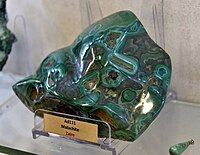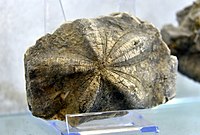 Erbil Stones and Gems Museum within the Citadel of Erbil | |
 | |
| Established | 1 January 2014 (originally in Shaqlawa), relocated to the Citadel in 2016 |
|---|---|
| Location | Erbil Citadel, Erbil, Iraqi Kurdistan |
| Coordinates | 36°11′25″N44°00′34″E / 36.19023°N 44.00936°E |
| Type | Mineralogy, Geology, Gemstones |
| Collections | Stones, gems, fossils, meteorites |
| Founder | Sarbast Majeed |
| Owner | Sarbast Majeed |
| Public transit access | Erbil City Center |
| Website | Facebook page |
Erbil Stones and Gems Museum is a small museum located within the Citadel of Erbil, at the heart of the city of Erbil (Hawler), the capital of Iraqi Kurdistan.





